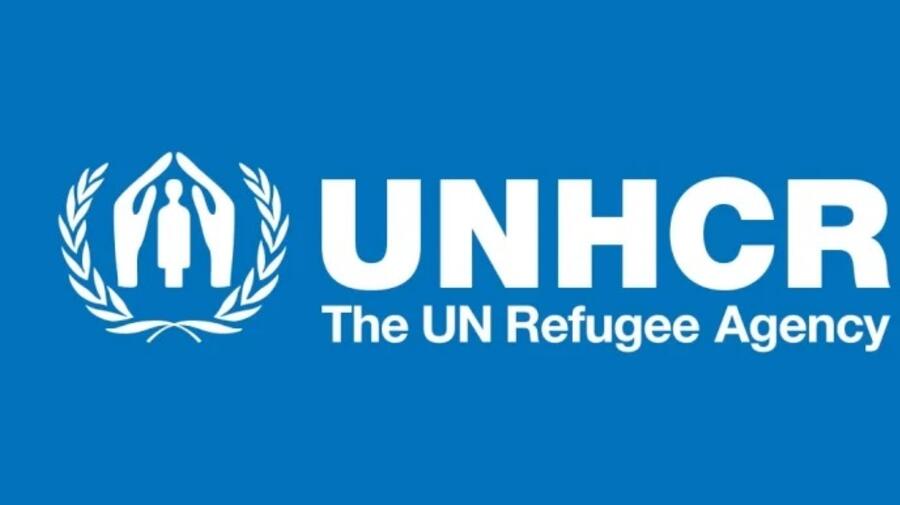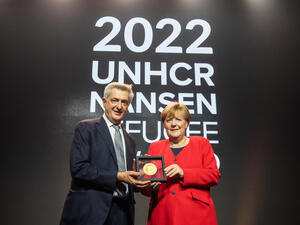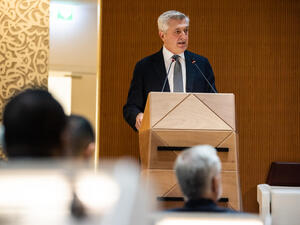UNHCR warns against "exporting" asylum, calls for responsibility sharing for refugees, not burden shifting
UNHCR warns against "exporting" asylum, calls for responsibility sharing for refugees, not burden shifting

Amid considerations by some governments to send asylum seekers abroad for processing, UNHCR, the UN Refugee Agency, is urging states not to externalize their asylum and protection obligations. UNHCR warns that such practices jeopardize the safety of those in need of international protection.
“UNHCR remains firmly opposed to externalization initiatives that forcibly transfer asylum seekers to other countries. Externalization simply shifts asylum responsibilities elsewhere and evades international obligations. Such practices undermine the rights of those seeking safety and protection, demonize and punish them and may put their lives at risk,” said UNHCR’s Assistant High Commissioner for Protection, Gillian Triggs.
“It is ironic that, as we celebrate the 70th anniversary of the Refugee Convention, attempts are being made to weaken its principles and spirit. Instead, the priority must be to find more effective ways to guarantee the universal right to seek asylum and other rights provided by international refugee law.”
Externalization attempts typically involve the forced transfers of asylum seekers to third, often developing, nations where human rights safeguards and resources may not be adequate. This may lead to their indefinite “warehousing” in isolated places or in punitive conditions, at great harm to their physical and mental health.
“I am dismayed by the argument that it is more cost effective to send and host asylum seekers in countries of the global south. I find this morally reprehensible – we must not put price tags on human lives. Refugees are not commodities that can be traded by wealthier nations. To do so is dehumanizing, exploitative and dangerous,” warned Triggs.
“Externalization exploits both the vulnerabilities of overstretched, developing nations and those of refugees”.
While countries may agree to transfer asylum processing and protection responsibilities between themselves, UNHCR observes that such externalization arrangements often fall well short of international obligations in practice.
Under international law, the transferring State is responsible for ensuring that obligations to protect transferred asylum seekers are met fully by the receiving state. Some of these safeguards include protection against refoulement, access to fair and efficient asylum procedures, health care, employment, education, and social security, and the right to freedom of movement.
If these rights cannot be guaranteed, the transferring country will breach international law.
UNHCR believes that externalization arrangements run counter to the spirit of the Global Compact on Refugees under which 181 countries agreed to share equitably the responsibility for refugee protection.
“National, unilateral measures which, in effect, deny access to territory to claim asylum at a country’s borders and abdicate responsibility to others, threaten the long-respected refugee protection regime,” said Triggs.
The overwhelming majority of the world’s 26 million refugees, 85 per cent, are generously hosted in neighboring and developing regions, often for many years when protracted conflicts prevent returns. UNHCR urges that over-stretched refugee host countries are supported - not laden with more responsibility.
“The evidence is that externalization arrangements do not deter desperate refugees from taking perilous journeys to seek safety. Rather, they will magnify risks, prompt resort to alternative routes, and exacerbate pressures on frontline states,” warned Triggs.
UNHCR recognizes the challenges posed by forced displacement. But developed countries are host to only 15 per cent of the world’s refugees and are well resourced to manage claims for asylum in a humane manner. Concerted international action and global solidarity are also crucial to resolve the violence and crises that force people to flee. Unilateral responses are unhelpful and ineffective.
UNHCR stands ready to assist States in meeting their asylum obligations to ensure fair and fast asylum processes.
Notes to editors:
Non-refoulement is an international principle that prevents states from expelling or returning people to a territory where their life or freedom would be threatened.
For more information, please contact:
- In Geneva, Shabia Mantoo, [email protected], +41 79 337 7650








